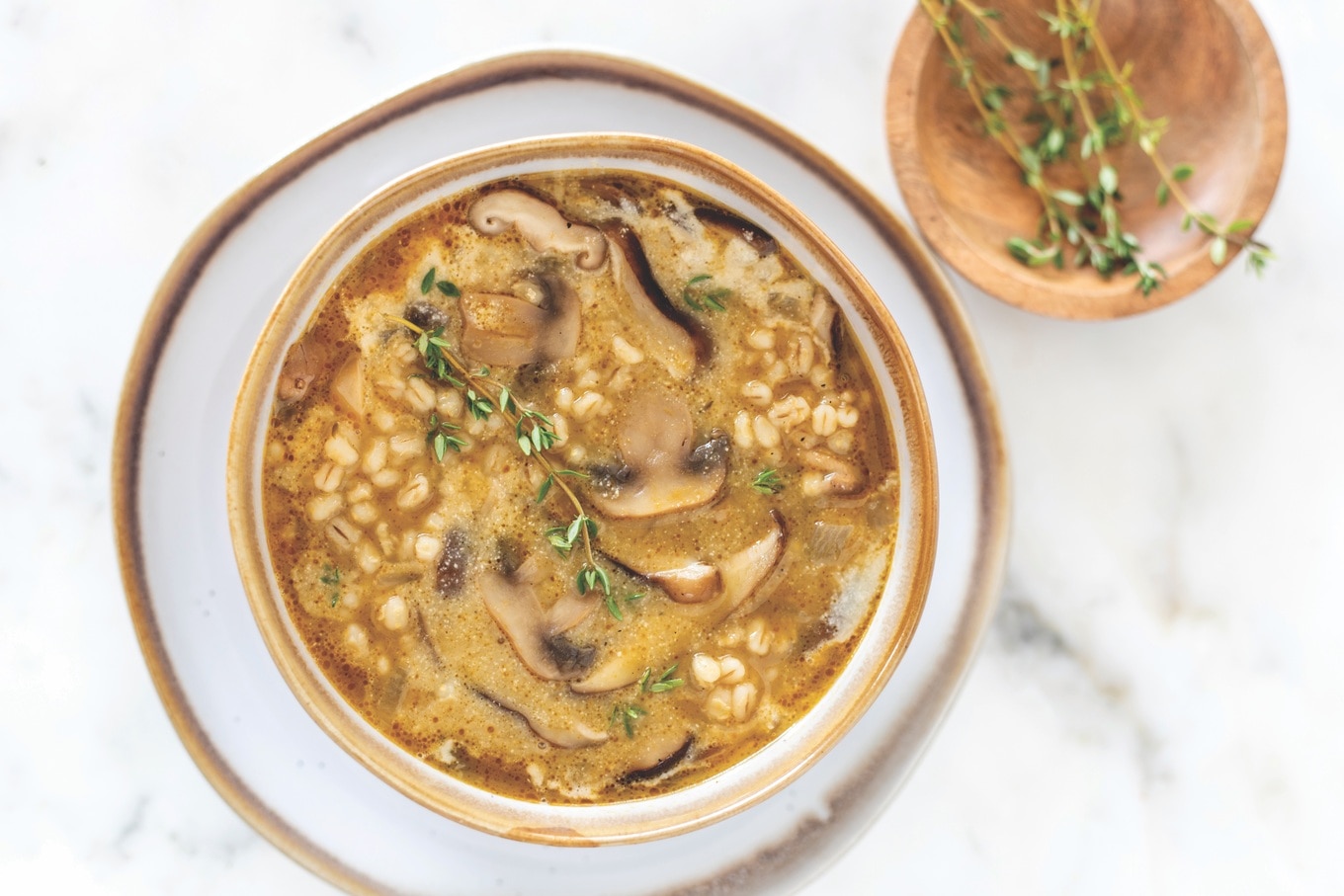If you’ve been considering adopting a vegan lifestyle, you might find yourself wondering, “Is going vegan safe?” With the growing popularity of plant-based diets, it’s important to understand the potential risks and benefits before making a switch. In this article, we will explore the safety of going vegan, examining the potential health implications, necessary dietary considerations, and how to ensure you’re meeting your nutritional needs. So, let’s dive into the world of veganism and find out if it’s a safe and sustainable choice for you.
Table of Contents
Nutritional Considerations
Meeting Protein Requirements
When following a vegan diet, it is essential to ensure that you are meeting your protein requirements. Protein is an essential nutrient that is responsible for the repair and growth of the body’s tissues. While many people believe that animal products are the only source of protein, there are several plant-based options available. Legumes and pulses, such as lentils, chickpeas, and beans, are excellent sources of protein. Tofu and tempeh are also rich in protein and can be incorporated into a variety of dishes. Grains and cereals, such as quinoa and brown rice, are great additions to a vegan diet and can contribute to your protein intake. Lastly, nuts and seeds, like almonds and chia seeds, can be sprinkled on salads or added to smoothies for an extra protein boost.
Obtaining Essential Vitamins and Minerals
Adopting a vegan lifestyle requires careful attention to obtaining essential vitamins and minerals that are commonly found in animal products. Vitamin B12, for example, is primarily found in animal products and is necessary for maintaining nerve function and producing DNA. It is important for vegans to ensure they are getting enough B12 through fortified foods or supplements. Vitamin D is another nutrient of concern, as it is mainly obtained through sunlight exposure and fortified foods. Calcium, essential for strong bones and teeth, can be found in leafy greens, tofu, and fortified plant-based milk. Iron, important for oxygen transport in the body, can be obtained from dark leafy greens, legumes, and fortified cereals. Lastly, zinc, which supports immune function and DNA synthesis, can be found in beans, nuts, and whole grains.
Ensuring an Adequate Iron Intake
Iron is an essential mineral that plays a crucial role in the body, including the production of red blood cells and the transportation of oxygen. While iron is typically associated with meat consumption, there are several plant-based sources of iron that can be incorporated into a vegan diet. Dark leafy greens, such as spinach and kale, are excellent sources of iron. Legumes, including lentils and chickpeas, are also rich in iron. Fortified cereals can be an easy and convenient way to increase your iron intake. Additionally, nuts and seeds, such as pumpkin seeds and cashews, can provide a boost of iron. Finally, quinoa, a versatile grain, is a great source of iron and can be used as a base for salads or grain bowls.
Getting Enough Omega-3 Fatty Acids
Omega-3 fatty acids are a type of polyunsaturated fat that are beneficial for our overall health, including heart health and brain function. While fish is a common source of omega-3 fatty acids, there are several plant-based options available for vegans. Flaxseeds and chia seeds are excellent sources of omega-3s and can be easily added to smoothies, oatmeal, or baked goods. Walnuts and almonds are also rich in omega-3s and make for a great snack. Leafy greens, such as spinach and kale, provide a small amount of omega-3s as well. For a more concentrated source, consider incorporating seaweed or algae oil into your diet. Finally, soy products, such as tofu or edamame, are a versatile and protein-rich option that can also provide a good amount of omega-3s.
Maintaining Calcium Levels
Calcium is a crucial mineral that is essential for building and maintaining strong bones and teeth. While dairy products are often associated with calcium, there are several plant-based sources that can adequately meet your calcium needs. Calcium-fortified plant milk, such as almond milk or soy milk, can be an excellent source of calcium. Tofu and tempeh, both derived from soybeans, are also rich in calcium. Leafy greens, like broccoli and kale, contain calcium as well. For a quick and convenient option, consider incorporating fortified cereals into your diet. Lastly, calcium supplements can be used to ensure you are meeting your daily requirements, especially for those with increased calcium needs.
Potential Health Benefits
Reduced Risk of Heart Disease
Adopting a vegan diet can potentially reduce the risk of heart disease. A vegan diet is naturally low in saturated fat and cholesterol, which are known to contribute to heart disease. Additionally, a vegan diet typically includes higher amounts of fruits, vegetables, whole grains, and legumes, all of which are associated with a reduced risk of heart disease. By eliminating animal products and focusing on plant-based foods, you can improve your heart health and reduce your risk of developing cardiovascular issues.
Lowered Blood Pressure
High blood pressure is a leading risk factor for heart disease and stroke. Following a vegan diet can help lower blood pressure due to its emphasis on fruits, vegetables, whole grains, and legumes, all of which are low in sodium and high in potassium. Sodium is known to raise blood pressure, while potassium helps relax blood vessels and decrease tension in the arteries. By following a vegan diet, you can naturally lower your blood pressure and reduce the risk of developing hypertension.
Weight Management
Maintaining a healthy weight is important for overall health and can contribute to a reduced risk of chronic diseases such as diabetes and heart disease. Following a vegan diet can support weight management due to its emphasis on whole, unprocessed plant foods. Fruits, vegetables, whole grains, and legumes are typically lower in calories and higher in fiber, which can help you feel fuller for longer. Additionally, a vegan diet eliminates high-calorie animal products, such as meat and dairy, which can aid in weight loss or weight maintenance.
Improved Digestive Health
A vegan diet that includes a variety of fruits, vegetables, whole grains, and legumes can provide a significant amount of dietary fiber. Fiber is essential for maintaining a healthy digestive system and preventing constipation. Plant-based foods are rich in both soluble and insoluble fiber, which can promote healthy bowel movements and support overall gut health. By adopting a vegan diet, you can potentially improve your digestive health and experience a smoother digestive process.
Alleviation of Certain Allergies
For individuals with allergies or sensitivities to animal products, following a vegan diet can provide relief from symptoms. Many common food allergens, such as dairy, eggs, and shellfish, are avoided in a vegan diet. By eliminating these allergens, individuals may experience a decrease in allergy symptoms, such as skin rashes, digestive issues, or respiratory problems. However, it is important to note that every individual is unique, and consulting with a healthcare professional is advised for personalized guidance.
Risks and Challenges
Risk of Nutrient Deficiencies
While a vegan diet can provide numerous health benefits, it is important to be aware of the potential risks of nutrient deficiencies. Certain nutrients, such as vitamin B12, vitamin D, calcium, iron, and zinc, are typically found in higher amounts in animal products. Vegans need to ensure they are incorporating adequate plant-based sources or supplements to meet their nutritional needs. Regular monitoring of nutrient levels through blood tests and consultation with a healthcare professional or registered dietitian is highly recommended to prevent deficiencies.
High-Fat and Processed Vegan Foods
It is important to note that not all vegan foods are healthy. Some vegan options, such as vegan desserts, fried foods, or processed snacks, can be high in unhealthy fats, added sugars, and sodium. Consuming these foods in excess can lead to weight gain, an increased risk of chronic diseases, and nutrient imbalances. It is essential to focus on whole, unprocessed plant foods and limit the consumption of high-fat and processed vegan options for optimal health.
Eating Out and Social Challenges
Following a vegan diet can pose challenges when dining out or attending social gatherings. Many restaurants do not offer a wide variety of vegan options, which may limit your choices or require modifications to existing dishes. It can be helpful to research vegan-friendly restaurants or communicate your dietary needs with the establishment in advance. When attending social gatherings, it is recommended to bring a vegan dish to share or communicate your dietary preferences to the host. By planning ahead and advocating for your dietary needs, you can navigate these challenges and still enjoy social experiences.
Lack of Variety in Food Choices
While a vegan diet can be diverse and filled with a variety of plant-based foods, some individuals may find it challenging to incorporate different food choices and flavors into their meals. It is essential to explore new recipes, experiment with various fruits, vegetables, grains, legumes, herbs, and spices to ensure a well-rounded and enjoyable eating experience. By introducing new ingredients and trying different cooking methods, you can expand your palate and avoid monotony in your vegan diet.
Potential for Inadequate Caloric Intake
A common concern with a vegan diet is the potential for inadequate calorie intake, especially if not properly planned and balanced. As plant-based foods are typically lower in calories compared to animal products, it is important to ensure you are consuming an adequate amount of energy to meet your daily needs. Including calorie-dense foods, such as nuts, seeds, avocados, and healthy fats, can help increase your calorie intake. Additionally, consulting with a registered dietitian can guide you in creating a well-balanced meal plan that meets your calorie requirements while providing essential nutrients.
Protein Sources in a Vegan Diet
Legumes and Pulses
Legumes and pulses, such as lentils, chickpeas, and beans, are excellent sources of plant-based protein. These versatile ingredients can be used in a variety of recipes, including soups, stews, salads, and curries. By incorporating legumes and pulses into your meals, you can ensure you are meeting your protein requirements while enjoying delicious and nutritious dishes.
Tofu and Tempeh
Tofu and tempeh are commonly used in vegan cooking and provide a significant amount of protein. Tofu, made from soybeans, has a neutral flavor and can be marinated or seasoned to absorb different tastes. Tempeh, also made from soybeans, has a nutty flavor and can be baked, sautéed, or grilled. Both tofu and tempeh are versatile options that can be used as a meat substitute in various recipes, such as stir-fries, sandwiches, and salads.
Grains and Cereals
Grains and cereals, such as quinoa, brown rice, and oats, can also contribute to your protein intake. Quinoa, often referred to as a superfood, is a complete protein source and contains all nine essential amino acids. Brown rice and oats are also rich in protein and can be used as a base for meals or added to dishes for additional protein content. Incorporating a variety of grains and cereals into your diet can enhance the diversity of your protein sources.
Nuts and Seeds
Nuts and seeds, such as almonds, chia seeds, and hemp seeds, are not only rich in healthy fats but also provide a good amount of protein. These nutrient-dense foods can be enjoyed as a snack, added to salads, used as a topping for smoothie bowls, or used in baking. They provide a crunch and texture while adding protein and essential nutrients to your meals.
Soy Products
Soy products, including soy milk, tempeh, and tofu, are excellent sources of plant-based protein. Soy milk can be used as a dairy milk alternative and easily incorporated into smoothies, cereals, or recipes. Tempeh and tofu can be marinated and used in various dishes as a versatile and protein-rich ingredient. They are commonly used as meat substitutes in vegan cooking and provide a substantial amount of protein.
Essential Vitamins and Minerals to Monitor
Vitamin B12
Vitamin B12 is an essential nutrient that is primarily found in animal products. Vegans need to closely monitor their vitamin B12 intake and consider supplementation. Vitamin B12 plays a crucial role in nerve function, DNA production, and the formation of red blood cells. Including fortified foods, such as plant-based milk or breakfast cereals, or taking a B12 supplement can help meet your daily requirements.
Vitamin D
Vitamin D is primarily synthesized in the body through sunlight exposure, making it a concern for individuals following a vegan lifestyle, particularly in areas with limited sunlight. Fortunately, vitamin D can also be obtained through fortified plant-based milk, cereal, or supplements. Vitamin D is important for bone health, immunity, and overall well-being, and monitoring your levels is crucial for maintaining optimal health.
Calcium
Calcium is essential for bone and teeth health, nerve function, and muscle contraction. While dairy products are often associated with calcium, it is important for vegans to seek alternative sources. Leafy greens, such as kale and broccoli, are excellent plant-based sources of calcium. Additionally, calcium-fortified plant milk, tofu, and fortified cereals can provide a good amount of this essential mineral.
Iron
Iron is necessary for oxygen transport in the body and plays a key role in energy production. Vegans can obtain iron from plant-based sources such as dark leafy greens, legumes, fortified cereals, nuts, and seeds. Pairing iron-rich foods with sources of vitamin C, such as citrus fruits or bell peppers, can enhance iron absorption. Monitoring your iron levels is important, as deficiency can lead to fatigue and decreased immune function.
Zinc
Zinc is an essential mineral that supports immune function, protein synthesis, and DNA synthesis. Plant-based sources of zinc include beans, lentils, whole grains, nuts, and seeds. However, the bioavailability of zinc from plant sources is lower compared to animal sources. Vegans should ensure they are consuming an adequate amount of zinc-rich foods or consider supplementation if needed.
Iron Sources in a Vegan Diet
Dark Leafy Greens
Dark leafy greens, such as spinach, kale, and Swiss chard, are excellent sources of iron. These nutrient-packed greens can be enjoyed raw in salads or cooked in a variety of dishes, such as stir-fries, soups, and smoothies. Including a variety of dark leafy greens in your diet can help ensure you are meeting your iron needs.
Legumes
Legumes, including lentils, chickpeas, black beans, and kidney beans, are not only a great source of protein but also provide a significant amount of iron. These versatile ingredients can be used in a wide range of recipes, such as soups, stews, and curries. Incorporating legumes into your diet can help boost your iron intake.
Fortified Cereals
Fortified cereals, such as bran flakes or cornflakes, can be an easy and convenient way to increase your iron intake. These cereals are fortified with various nutrients, including iron. Choosing a whole grain cereal option that is low in added sugars can provide a good source of iron to supplement your vegan diet.
Nuts and Seeds
Nuts and seeds, such as pumpkin seeds, hemp seeds, and cashews, can add a nutritional boost to your meals while providing a good amount of iron. These crunchy and delicious toppings can be sprinkled on salads, added to smoothies, or used in baking. Enjoying a handful of nuts or seeds as a snack can also contribute to your iron intake.
Quinoa
Quinoa is a versatile grain that is not only rich in protein but also provides a good amount of iron. This ancient grain can be used as a base for salads, added to soups, or used as a side dish. Incorporating quinoa into your meals can help diversify your iron sources in a vegan diet.
Omega-3 Fatty Acid Sources in a Vegan Diet
Flaxseeds and Chia Seeds
Flaxseeds and chia seeds are excellent sources of omega-3 fatty acids, specifically alpha-linolenic acid (ALA). These seeds can be ground and added to smoothies, oatmeal, or used as an egg substitute in baking. Including flaxseeds and chia seeds in your diet can help boost your omega-3 intake and promote overall health.
Walnuts and Almonds
Walnuts and almonds are not only rich in healthy fats but also provide a good amount of omega-3 fatty acids. These nuts can be enjoyed as a snack, added to salads, or used in baking. Including a handful of walnuts or almonds in your daily routine can contribute to your omega-3 intake.
Leafy Greens
Leafy greens, such as spinach and kale, provide a small amount of omega-3 fatty acids. While they may not be as high in omega-3s compared to other sources, incorporating these nutrient-dense greens into your diet can provide a range of health benefits. Adding leafy greens to salads, smoothies, or sautéing them as a side dish can help increase your omega-3 intake.
Seaweed and Algae Oil
Seaweed and algae oil are unique plant-based sources of omega-3 fatty acids, specifically eicosapentaenoic acid (EPA) and docosahexaenoic acid (DHA). These marine-derived sources are suitable for vegans and can be incorporated into various dishes. Seaweed can be added to salads or used in sushi rolls, while algae oil can be consumed as a supplement.
Soy Products
Soy products, such as tofu or edamame, are not only rich in protein but also provide a good amount of omega-3 fatty acids. Including soy products in your vegan diet can help boost your omega-3 intake while adding variety to your meals. Tofu can be marinated and used in stir-fries or added to salads, while edamame can be enjoyed as a snack or incorporated into various recipes.
Guidance for Meeting Calcium Requirements
Calcium-Fortified Plant Milk
Calcium-fortified plant milk, such as almond milk, soy milk, or oat milk, can be an excellent source of calcium for vegans. These dairy milk alternatives are fortified with calcium and can be used in the same way as regular milk. Enjoy them in a glass, pour over cereal, or use in cooking and baking to ensure you are meeting your calcium requirements.
Tofu and Tempeh
Tofu and tempeh, both made from soybeans, not only provide protein but also contain a good amount of calcium. Including tofu and tempeh in your diet can contribute to your calcium intake. Incorporate them into stir-fries, salads, or sandwiches to enjoy their versatility and reap the calcium benefits.
Leafy Greens
Leafy greens, such as kale, broccoli, and bok choy, are excellent plant-based sources of calcium. These nutrient-dense greens can be enjoyed in salads, stir-fries, or steamed as a side dish. Including a variety of leafy greens in your diet can help meet your calcium requirements while providing a range of other essential nutrients.
Fortified Cereals
Fortified cereals can be a convenient way to increase your calcium intake. Choose whole grain cereals that are fortified with calcium and low in added sugars. Enjoy them with plant-based milk and top with fresh fruits or nuts for a nutritious and calcium-rich breakfast option.
Calcium Supplements
For individuals who may have difficulty meeting their calcium requirements through diet alone, calcium supplements can be considered. It is important to consult with a healthcare professional or registered dietitian to determine the appropriate dosage and ensure there are no interactions with other medications or supplements you may be taking.
The Importance of Meal Planning
Ensuring a Balanced Diet
Meal planning is crucial for vegans to ensure they are consuming a balanced diet that meets their nutritional needs. By taking the time to plan your meals, you can ensure that you are incorporating a variety of plant-based protein sources, fruits, vegetables, whole grains, and healthy fats into your daily meals. This can help prevent nutrient deficiencies and provide a wide range of essential vitamins and minerals.
Preventing Nutrient Deficiencies
By meal planning, you can ensure that you are obtaining all the essential nutrients your body needs. This includes vitamins, minerals, and macronutrients such as protein, carbohydrates, and fats. By incorporating a variety of plant-based foods into your meals and snacks, you can help prevent nutrient deficiencies that may occur when following a vegan diet. Consulting with a registered dietitian can offer personalized guidance to help you meet your specific nutrient needs.
Managing Portion Sizes
Meal planning can also help with portion control and managing your caloric intake. By planning your meals in advance, you can portion out appropriate serving sizes and avoid overeating. This can be especially important for weight management goals or individuals with specific dietary needs. By being mindful of portion sizes, you can help maintain a healthy balance in your vegan diet.
Including a Variety of Foods
When meal planning, it is important to include a variety of different foods to ensure you are receiving a wide range of nutrients. By incorporating different fruits, vegetables, legumes, whole grains, and plant-based proteins into your meals, you can enjoy a diverse and nutritionally rich diet. This can help prevent boredom or monotony with your food choices and ensure you are obtaining all the necessary nutrients your body needs.
Meal Prepping for Convenience
Meal prepping can be a time-saving and convenient practice for individuals following a vegan lifestyle. By prepping meals and snacks in advance, you can have healthy options readily available, especially during busy days or when on-the-go. Batch cooking and storing portioned meals in the fridge or freezer can help maintain consistency in your eating habits and prevent resorting to less healthy options. By dedicating a specific time each week for meal prepping, you can make your vegan diet more manageable and sustainable in the long run.
Consulting with a Registered Dietitian
Customized Meal Plans
A registered dietitian can provide personalized guidance and support in creating customized meal plans that meet your specific dietary needs and goals. Whether you are new to veganism or have been following a vegan diet for years, a dietitian can help ensure that you are obtaining all the necessary nutrients for optimal health. They can take into account your individual preferences, lifestyle, and any potential nutrient concerns to create a meal plan that suits your requirements.
Addressing Nutrient Concerns
By consulting with a registered dietitian, you can address any nutrient concerns you may have and receive expert advice on how to meet your specific needs. They can assess your current dietary intake, perform nutrient analysis, and provide recommendations to ensure you are obtaining adequate amounts of protein, vitamins, minerals, and healthy fats. This can help prevent nutrient deficiencies and promote overall well-being.
Professional Guidance and Support
A registered dietitian can offer professional guidance and support throughout your vegan journey. They have the knowledge and expertise to provide evidence-based recommendations and address any questions or concerns you may have. They can help you navigate the challenges of a vegan lifestyle, such as label reading, dining out, and meal planning. Having a dietitian as your ally can provide you with the necessary tools to thrive on a vegan diet.
Monitoring Health Markers
Working with a registered dietitian allows for regular monitoring of your health markers. They can help track vital signs, such as blood pressure, cholesterol levels, and nutrient levels, to ensure you are maintaining optimal health. By regularly assessing your health markers, a dietitian can help identify any potential issues and make appropriate adjustments to your vegan diet to optimize your well-being.
Adapting to Individual Needs
Each person has unique nutritional needs, and a registered dietitian can adapt the vegan diet to meet these needs. They can consider factors such as age, gender, activity level, preexisting medical conditions, and personal preferences when creating a meal plan. Whether you are an athlete, a pregnant woman, or someone with specific dietary restrictions, a dietitian can provide the necessary support to ensure your vegan diet is tailored to your individual needs.
In conclusion, going vegan can be a safe and healthy dietary choice when done correctly. By paying attention to nutritional considerations, such as meeting protein requirements and obtaining essential vitamins and minerals, you can ensure a well-rounded and balanced vegan diet. The potential health benefits of reduced risk of heart disease, lowered blood pressure, weight management, improved digestive health, and alleviation of certain allergies are attractive reasons to consider a vegan lifestyle. However, it is essential to be aware of the risks and challenges, such as the potential for nutrient deficiencies, high-fat and processed vegan foods, eating out and social challenges, lack of variety in food choices, and potential for inadequate caloric intake. By understanding these challenges and addressing them through careful meal planning, consulting with a registered dietitian, and incorporating a wide variety of plant-based protein sources, essential vitamins and minerals, and omega-3 fatty acids into your diet, you can thrive on a vegan lifestyle while ensuring your nutritional needs are met.






